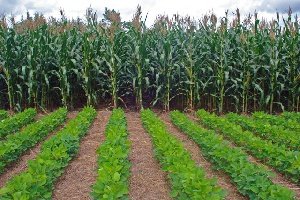Agricultural exports play a crucial role in Ghana’s economy. Data from the Ghana Statistical Service (2023) reveals that agri-food products valued at US$3.4 billion were exported from the country between 2022 and 2023.
Leading Ghana’s agricultural exports are Cocoa and Cocoa preparations (US$1.09 billion), Edible fruits, nuts, citrus peels, and melons (US$387.29 million), and Animal and vegetable fats, oils, and related products (US$191.31 million) (Trading Economics, 2023).
Non-traditional exports (NTEs) of agricultural products reached US$511.27 million in 2022, but saw a decline to approximately US$494 million in 2023.
The top 10 NTEs in agricultural products include Cashew nuts, Bananas, Fresh or chilled tunas, Shea nuts, Soya beans, Yams, Flowers, Catfish and squid, Onions and shallots, and Medicinal plants. These products are primarily exported to the EU, USA, UK, Canada, UAE, and various Asian and African countries (GEPA, 2023).
However, Ghana risks a drop in the volume and value of these exports if the issue of illegal mining (Galamsey) is not addressed. The country’s economy could face severe consequences if these export earnings are lost.
Galamsey activities threaten the quality of agricultural exports, potentially leading to bans or rejections due to non-compliance with Sanitary and Phytosanitary standards.
Illegal miners pollute the water, air, and soil through the release of toxic chemicals. Heavy metals such as Lead (Pb), Cadmium (Cd), Copper (Cu), Mercury (Hg), Iron (Fe), Nickel (Ni), Arsenic (As) and Zinc (Zn) in water can pollute the environment as a result of illegal mining.
Data from the US Centre for Disease Control and Prevention (CDC) shows that chemicals including mercury and cyanide pollute water, air, and soil through natural processes and industrial activities, thereby posing potentially deadly threat to humans.
Contamination of crops can arise from the presence of heavy metals. This is particularly true if farms are located in areas where illegal mining activities (galamsey) take place.
The heavy metals contaminate the soil, water and environment and thus pose food safety problems. (EPA Act, 1994, Act 490). Even contaminated water used to spray crops can well also have a poisonous effect on them.
To avoid contaminants such as cadmium, products such as cocoa and derived products inter alia should come from good trees (genetics) and be well cared for and grown in a suitable environment.
Exporters also need to check contaminants that enter fish products like Tuna/Skipjack/Bonito during the various levels in the process or environmental contamination. These contaminants are restricted by the Commission Regulation (EU) 2023/915.
Possible Impact on Trade
For the agri-food sector, food safety is extremely important. As such, meeting SPS requirements builds trust and gives assurance to buyers, consumers and markets that a product is safe to consume.
The possible consequences of contamination resulting from illegal mining activity include financial losses, legal pursuit, detention or rejection of products at the border. Additional testing and loss of reputation.
A Call to Action
There is a clarion call on duty bearers to put measures in place to mitigate the phenomenon. The bell is already ringing in both in the domestic and the international world regarding the danger that galamsey is posing or likely pose to not only human health but also the quality of food crops produced in the areas where such activities are taken place.
Former Chief Executive Officer of the Environmental Protection Agency (EPA), Dr. Henry Kwabena Kokofu, at a public lecture held at the Kumasi Technical University, is quoted to have sent a strong warning on the issue: “It is important to note that the cocoa industry which has been the backbone of our economy is in dire straits because of illegal mining.
Apart from depriving the farmlands and making it unavailable for farming, cocoa is being contaminated and very soon, the world market will come after us and cite contamination in our cocoa beans and that will be a very bad story for us as a people.”
The Importers and Exporters Association of Ghana has already cautioned about the potential threat posed by galamsey to the country’s agricultural exports.
Its concern emanates from reports showing that exported food products from Ghana, including staple commodities like cocoa, yams, and vegetables, have been found to contain traces of harmful heavy metals.
Should Ghana’s agro-export be foreclosed in the international market, what it means is that the economy will lose all the foreign exchange that accrues from our exports. This could decimate the agric sector and could lead to an explosive situation.
Starting next year, Ghana would need more forex to pay for its maturing external debt and with dwindling foreign reserves at the Bank of Ghana, the cedi could face its severe adversity. Such pressure on the cedi could threaten the foundation of the economy, jobs, food security, and even national security.
One does not need to be a prophet or a Nobel Laureate in Economics to be able to predict the existential threat that Galamsey has on the economy.
Source: Ghanaweb

